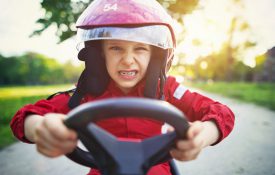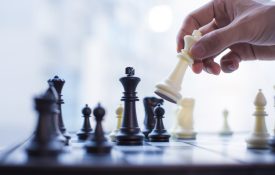-
New Research From Psychological Science
A sample of new research exploring parallel processing in a language task, the neural basis of independence versus interdependence orientations, age differences in risky decision making, and switch costs in visual attention.
-

Teens Drive More Safely in the Months After a Crash
Research involving actual driving data from over 250 teens suggests that involvement in a severe crash may prompt adolescents to engage in safer driving behavior.
-

Is Your Steering Wheel in Safe Hands?
Changes to the way drivers’ position their hands on the steering wheel may be a useful proxy for detecting perceptions of risk and cognitive demand.
-

Is There an Ideal Time of Day for Decision-Making?
New research uses a massive database of thousands of online chess games to examine how time of day influences decision-making abilities.
-
Teens’ Penchant For Risk-Taking May Help Them Learn Faster
NPR: The teenage brain has been characterized as a risk-taking machine, looking for quick rewards and thrills instead of acting responsibly. But these behaviors could actually make teens better than adults at certain kinds of
-
Why Do We Judge Parents For Putting Kids At Perceived — But Unreal — Risk?
NPR: Many parents who grew up playing outdoors with friends, walking alone to the park or to school, and enjoying other moments of independent play are now raising children in a world with very different

